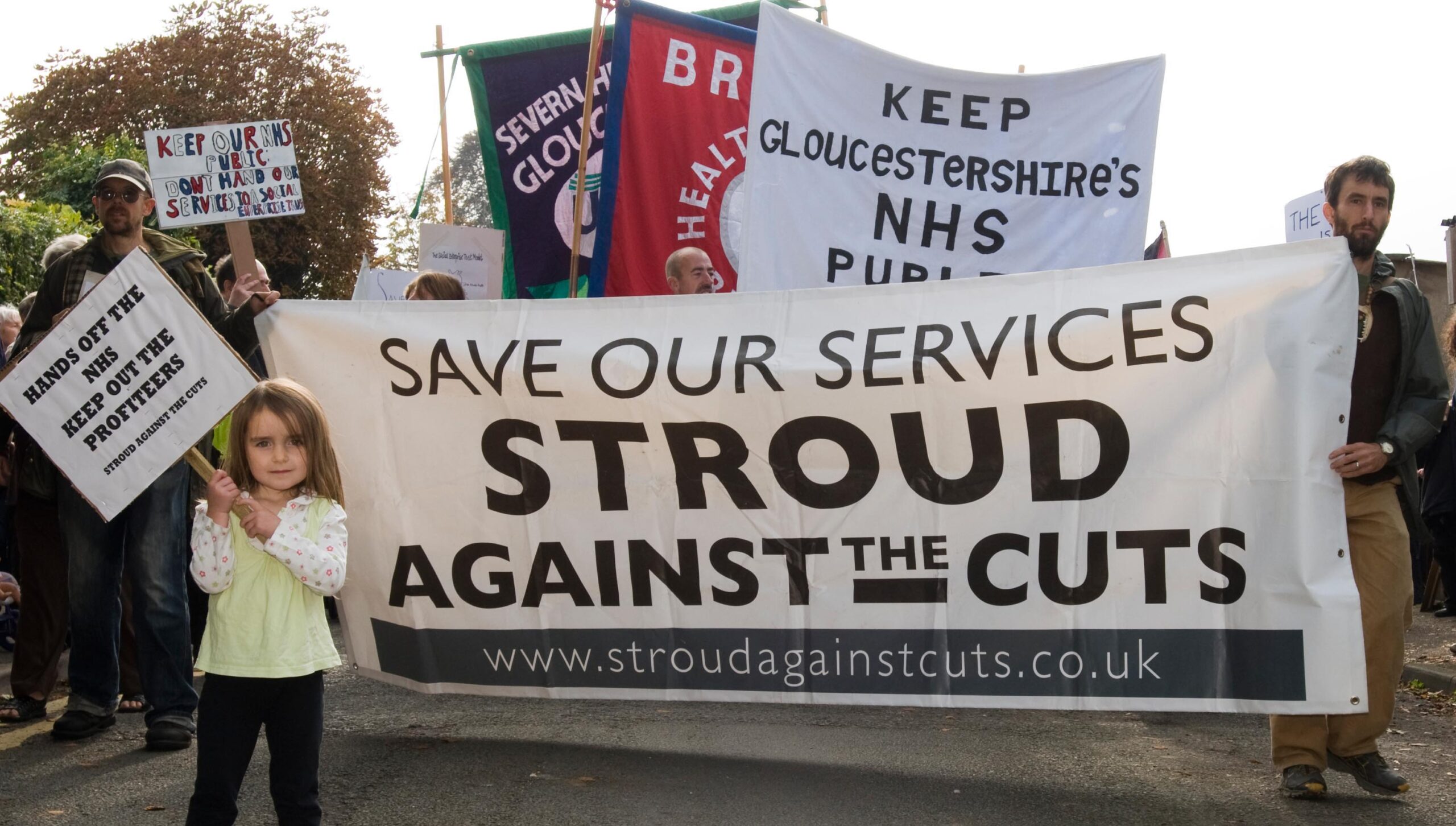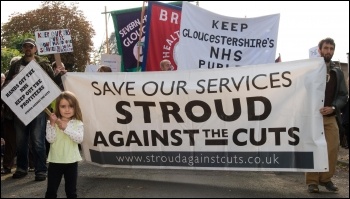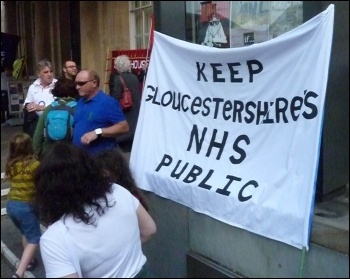The area reserved for members of the public was packed for the Board meeting of NHS Gloucestershire on 15 October. After 18 months hard campaigning and taking the case to the High Court for a judicial review, Gloucestershire’s local anti-cuts groups got the decision which they had been told was “impossible”, “illegal” and according to NHS manager-speak “unwanted”.
Eight community hospitals, community health services and around 3,000 staff will not be taken out of the NHS into a social enterprise, nor will these services be open to tender. The campaign has achieved an NHS stand-alone trust which in about 18 months’ time will become an NHS Foundation Trust.
It was a remarkable victory in many respects, but the mood was not jubilant. Everyone is aware that NHS cuts will create huge problems. The wages and conditions of NHS staff are under attack from the recently established South West pay consortium which the new trust will sign up to.
At the start of the campaign the health unions were less than enthusiastic about the challenge to the social enterprise which they, and management, claimed was the best that could be achieved.
This claim, like the argument that the staff and public supported the move to outsource to social enterprise, was blown apart by the legal action, the campaign and the results of the consultation process it engendered: 91% of staff and 96% of the public voted in favour of the NHS option.
A victory can only be achieved by fighting back. We have won a battle – it has shown that gains can be achieved and will strengthen our resolve to keep up the campaign.
Sue Powell
Mass struggle needed
Austerity is hitting the NHS. 26,000 nursing posts have already been reduced, with a further 34,000 to be sacrificed, to balance budgets at the expense of patient care.
Nursing staff and healthcare assistants report being so overstretched that patients are being nursed in hospital corridors. Staffing levels are often dangerously low, with nurses having to care for up to 18 patients at once. District and community services are increasingly under strain.
With the pensions attacks, we are being forced to work in physically, mentally and emotionally demanding roles until we are 68. The government is hell-bent on cutting the pay of nurses and other public sector workers serving communities outside of the M25 – although they won’t extend this measure to MPs and we all suffer the pay freeze.
This is the state of affairs after just one of four years of planned cuts.
In the latest cabinet reshuffle, David Cameron recognised the unpopularity of his government’s bid to privatise the NHS, sacrificing the reform’s architect, Andrew Lansley. His replacement, Jeremy Hunt, represents more of the same.
Like a broken record Hunt, like Lansley before him, repeats the mantra that ‘cuts have to be made’ and that the ‘private sector can do it better’.
And the NHS is not alone.
Hundreds of thousands of public sector workers are expected to march on London against these measures on 20 October. The march promises to be a great day, but we need more – we need to act on the motion passed at the TUC conference to look into the possibility of a 24-hour general strike. The demand for publicly funded, high quality healthcare should be central to this battle against austerity.










